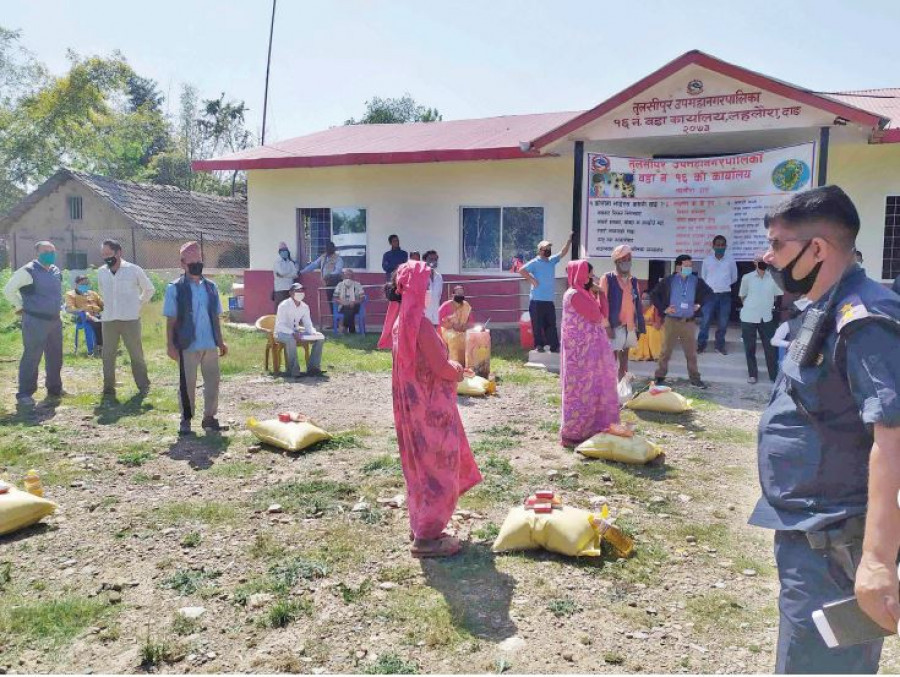National
Federal lawmakers retain key role in distribution of funds to fight Covid-19 pandemic at local level
A former auditor general warns the system will lead to misuse of funds and mismatch in priorities.
Prithvi Man Shrestha
Lawmakers will retain their role in utilising the resources transferred from the Local Infrastructure Development Partnership Programme to fight the Covid-19 pandemic despite government’s decision to transfer the unused funds to the accounts created by local governments to prevent the disease at the local level.
The Cabinet on June 16 had approved an amendment to the regulation governing the Local Infrastructure Development Partnership Programme, allowing transfer of its unused funds to Covid-19 accounts at the local level.
As per the amendment, the transferred amount cannot be used for other purposes except for prevention, control and treatment of Covid-19 pandemic.
In a circular issued to the local governments, the Ministry of Federal Affairs and General Administration has provided a key role to the lawmakers to mobilise the funds transferred to the local Covid-10 accounts.
The circular states that the coordinator of the programme direction committee in consultation with the committee members, will determine the budget and the activities to be carried out for the prevention, control and cure of Covid-19.
A directly elected lawmaker will act as the committee coordinator and lawmakers elected to the House of Representatives under proportional electoral system and the lawmakers of the National Assembly will be its members.
However, the programme has become controversial due to the outsized role the lawmakers enjoy in selecting projects and spending the budget.
“If you make the local government accountable to both the local assembly and the federal lawmakers, the effectiveness of the programme could be badly affected,” said Bhanu Acharya, former auditor general. “There can be different priorities of the lawmakers and the local governments and this could lead to mismatch in priorities and misuse of funds.”
Acharya said it would be better if all the responsibility of fund management is given to the local governments since they will know where the funding is necessary.
After the local governments were elected, questions were asked regarding the relevance of the controversial Local Infrastructure Development Partnership Programme.
However, the government has continued the programme by increasing the size of the budget due to intense pressure from the federal lawmakers.
Acharya said that the pandemic was an opportune moment to discontinue the much-criticised programme, but the government could not resist the pressure from the lawmakers.
Despite facing a resource crunch that constricted the budget size for the fiscal year 2020/21, the government has continued the programme by reducing the constituency development fund to Rs 40 million from Rs60 million.
In the current fiscal year, much of the budget allocated for Local Infrastructure Development Partnership Programme has gone unspent.
According to the Financial Comptroller General Office, only a small amount of the budget allocated for the programme has been spent so far this fiscal year due to prolonged lockdown.
Gopinath Mainali, secretary at the office, had told the Post in a recent interview that only around 10 percent of the total allocated budget had been spent. It means, nearly Rs9 billion could be utilised to fight the Covid-19 pandemic at the local levels which are struggling to manage the quarantine centres.
This may be a respite for the federal government, which is facing difficulty in collecting taxes after a Supreme Court order extended the tax payment deadline by at least 30 days in view of the lockdown.
The federal government has told the provincial and local governments to first use their own resources to fight the disease before asking for resources from the centre.




 9.89°C Kathmandu
9.89°C Kathmandu














